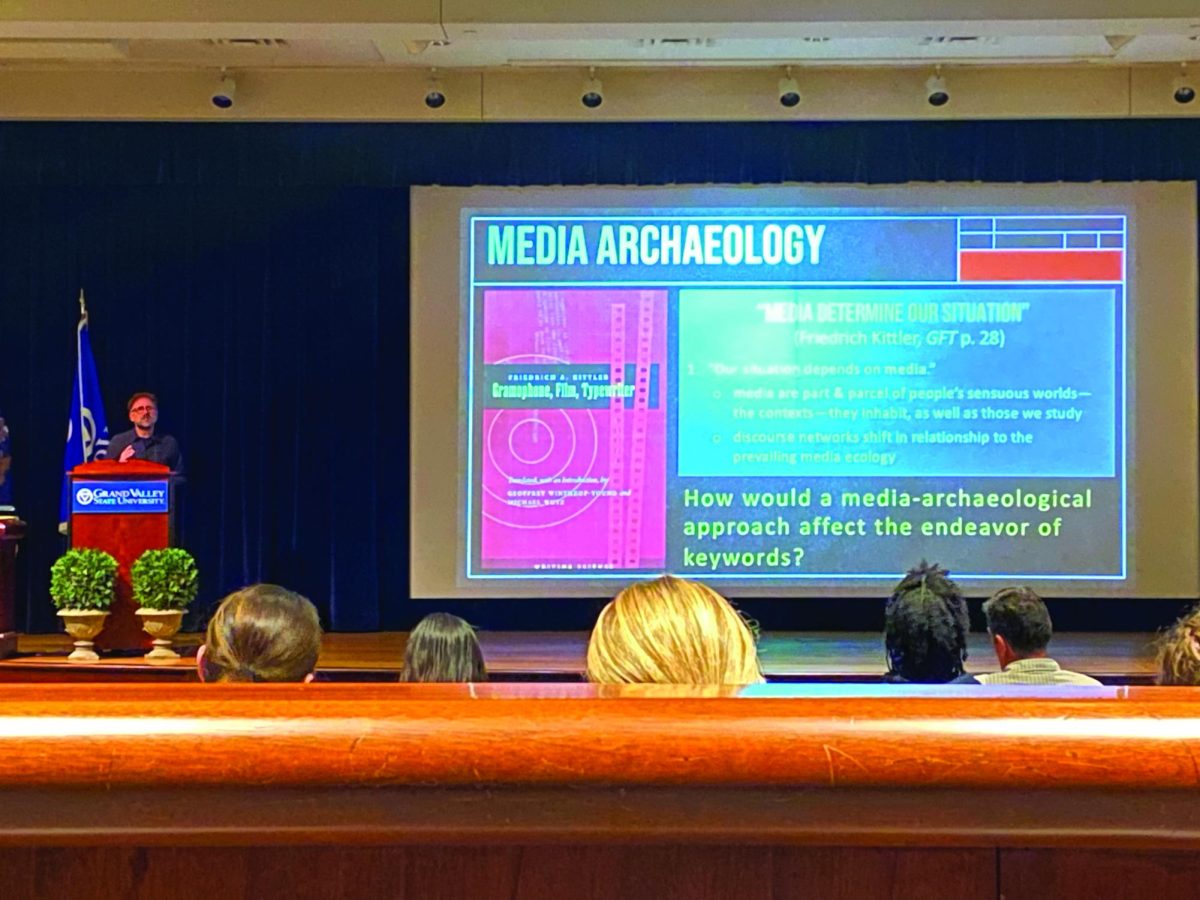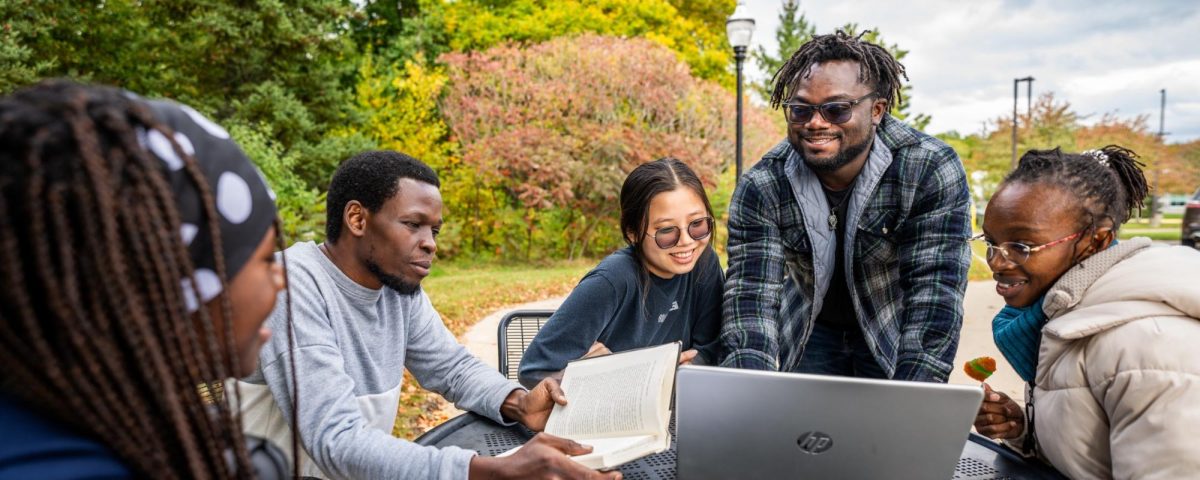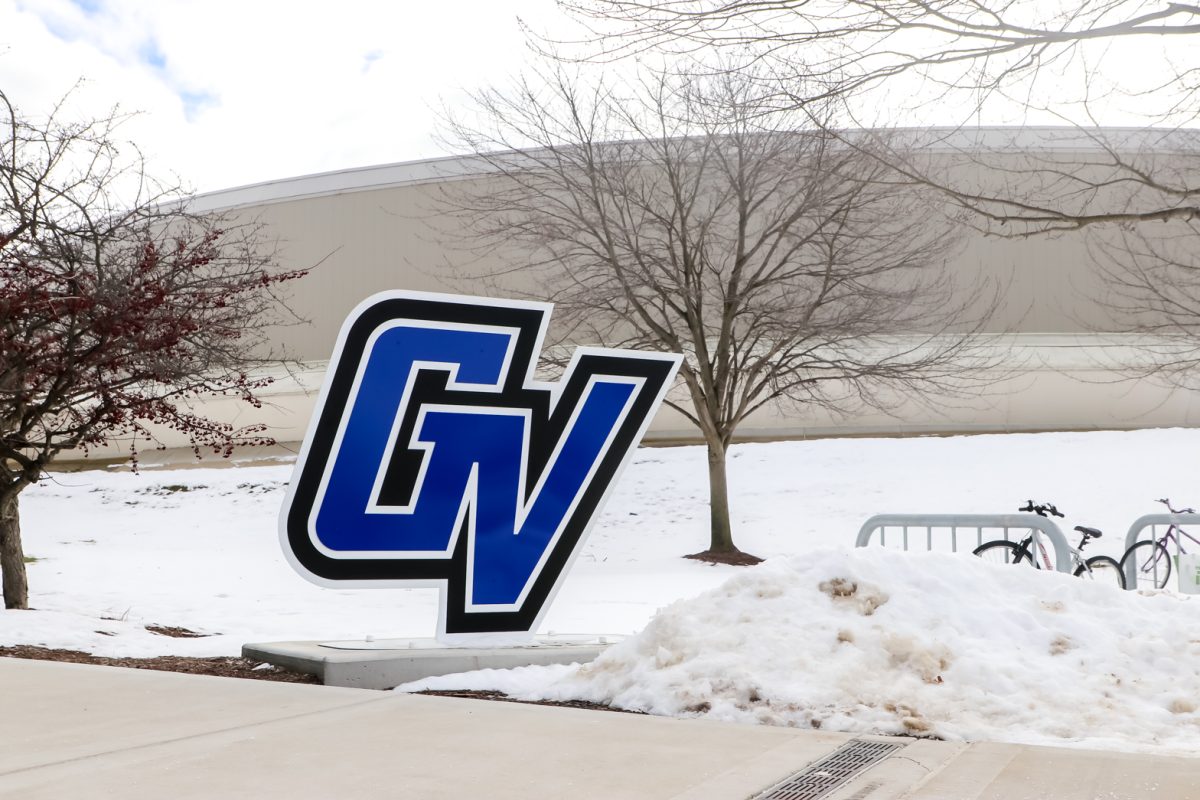The 2023 James W. Carey Memorial Lecture featured speaker Ted Striphas, Ph.D., and elaborated on the subject of his book “Algorithmic Culture Before the Internet” on Sept. 27. The topic of the lecture was the impact of keywords and algorithms and how they have changed social and societal culture.
Striphas is a professor at the University of Colorado-Boulder. With a personal connection to James W. Carey, Striphas was invited to host the memorial lecture in the Loosemore Auditorium on the Pew Grand Valley State University campus by the School of Communications as an ode to Carey and the work he has done for the university.
Striphas studies the relationship between linguistic change and emerging technologies, which he built throughout the presentation with references to his latest literary work, “Algorithmic Culture Before the Internet.” Working through chapters one through four, Striphas outlined the historical significance of keywords and algorithms, and how those ideas have developed into a social acceptance of mathematical ideas winding into culture.
“The argument that I make is, I think a lot of language change happens before the technology comes online,” Striphas said. “At least in some cases, the technology catches up with the language that the technology is able to do or to materialize the understanding if it’s already been sort of made available. So that’s the argument of the algorithmic culture book.”
Eric Harvey, Associate Professor in the GVSU School of Communications summarized the content using references many students can relate to: Spotify Wrapped.
“Think about how Netflix’s and Spotify’s private algorithms are not only helping to define what your ‘taste’ is, in the case of something like the year-end summary ‘Spotify Wrapped,’ it’s taking another step and saying, ‘because you listened to these songs, this often, you’re this kind of person,’” Harvey said. “That’s a fascinating and maybe troubling thing—and according to Ted, the same kinds of processes have a much longer history than we know.”
Striphas compared the algorithmic impacts of technology in communication to the creation of the calculator’s impact on mathematics, noting how the relationship has developed as a tool to further the subject.
“I take solace from the world of mathematics, which had exactly this crisis 15 years ago with calculators and when eventually computers became a thing,” Striphas said. “We still have math departments and everybody else takes math, so that doesn’t go away, you know? So it’s really a matter of working through the change and figuring out that partnerships are as meaningfully productive as you can (make them).”
Professor Corey Anton of the School of Communications said the impacts of algorithmic culture and the further adaption of technology into everyday life have changed people’s social communication patterns and the way people are able to interact with others on a day-to-day basis.
“I think not only will (technology) have some homogenization of style, people will defer to its judgment rather than express themselves in their idiosyncratic ways. It’s quite a concern actually,” Anton said. “Texting gives you something like a chance to formulate your thoughts and deliberate over what to say and what not to say. Whereas face-to-face, it has this timing element of spontaneity. I think some students, because they routinely use texting as their main mode of communication, find everyday conversation to be having, like, (a performative quality), it gives them performance anxiety.”
At the end of the presentation, Striphas opened the floor to comments from the audience about anything from the material of the presentation. A few audience members were curious about the algorithmic prevalence of artificial intelligence (AI), and had questions about the effects it could have on interpersonal communication. Striphas said the developments of predictive text and artificial intelligence stemming from the algorithm’s integration into culture have been a “mixed bag” in terms of the overall impact on human communication. Through a lens of censorship and content curation, the impact of algorithms are ongoing.
“I think those are the questions that we’re going to be really wrestling with going forward, will our expectation for accuracy and efficiency arrive at a kind of experience that actually is leaving us inexperienced with respect to other ways of relating to the world and other people?” Striphas said.
Harvey said his experience in journalism and education leads him to be cautious with generative AI, a development of algorithmic technology that is taking precedent more and more in communication fields.
“Like most journalists and educators, I am very cautious and skeptical about generative AI. Some newsrooms are experimenting with it to cover basic reporting tasks, like covering meetings or recapping games,” Harvey said. “Ideally, the reporters who used to perform those duties would be reassigned to longer-duration investigative work, but I don’t have faith that most newsroom decision-makers wouldn’t simply lay those journalists off instead.”
Harvey said he was appreciative to the School of Communications at GVSU for reaching out to Striphas the content of his new book was really important in the conversation of technology and its role in culture.
Harvey said the content of Striphas’ book is important in the conversation of technology’s role in culture, and he was appreciative to the School of Communications at GVSU for selecting him.
“As he (Striphas) mentioned during his talk, Ted has met James Carey personally, and was deeply inspired by his work,” Harvey said. “His new book on algorithmic culture is an important contribution to our discussions about the relationship between mathematical computation and culture—two phenomena that would otherwise seem to be at odds.”












